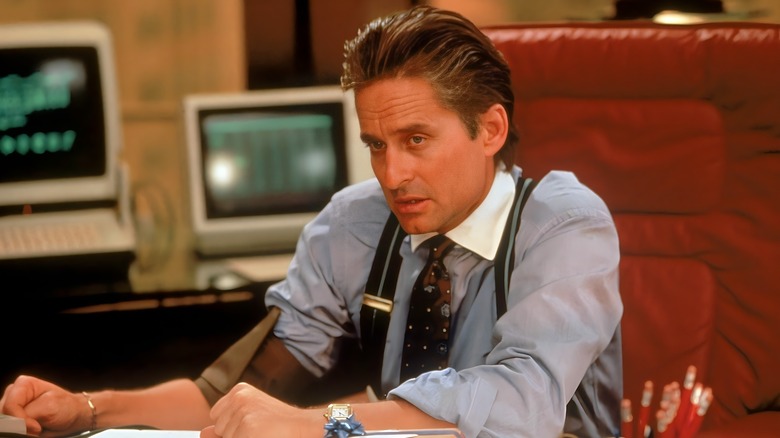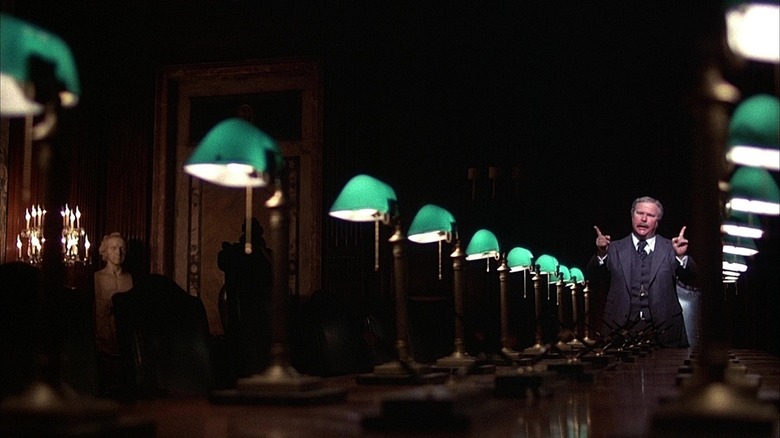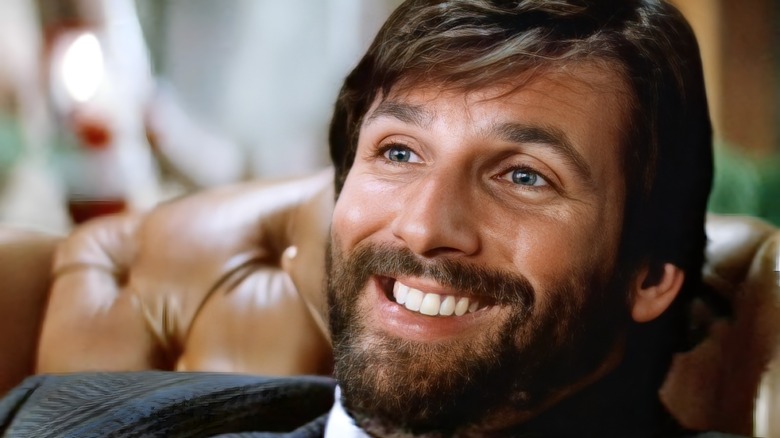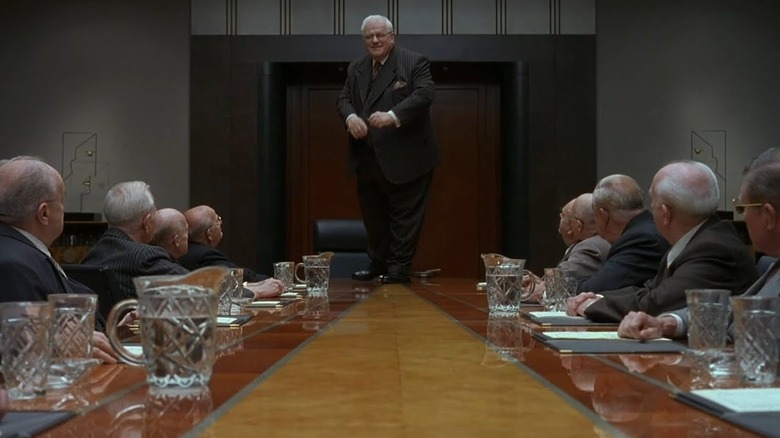As The Writers Strike Heats Up, The Studios Have Become Absolute Movie Villains
Labor disputes are obviously won and lost at the bargaining table, but the public relations battle is vital to stiffening workers' resolve, especially if it's a prolonged stoppage.
Take for instance the ongoing Writers Guild of America strike against the Alliance of Motion Picture and Television Producers. The gulf between both parties is distressingly wide. Faced with shortened show orders, decreasing pay, the nightmarish demands of a mini-room, and a lack of transparency from streamers as to the profitability of their shows and movies, writers are demanding increases in compensation across the board so they can afford to live in the cities where they create art for wildly successful corporations. Meanwhile, the studios, networks, and streamers would like writers to go away so they can dazzle their shareholders with profits the likes of which no media company has ever seen.
How serious is the AMPTP about putting a multitude of writers permanently out of work so they can farm out their highly skilled contributions to AI? Given that they peaced out of negotiations early, and have evinced zero interest in returning to the table, many people caught up in this tumult have feared they're happy to coast on finished or in-production content while said "content creators" risk everything to fight for a living wage.
Some people felt this view was a tad cynical. Fortunately, executives are as arrogant as they are dumb, and, thanks to Deadline, we now have them on the record explicitly wishing ruin on their grossly underpaid employees. And in the dog days of what promises to be a long stoppage, this is exactly what striking writers needed to hear to maintain the moral high ground.
The AMPTP goes scorched earth
According to Deadline, the AMPTP is banking on the fear of homelessness to win this dispute. Per one unnamed studio executive, "The endgame is to allow things to drag on until union members start losing their apartments and losing their houses." Another suit called this tactic "a cruel but necessary evil." The AMPTP waited a day to issue a mighty acrid piece of damage control that went a little something like this:
"These anonymous people are not speaking on behalf of the AMPTP or member companies, who are committed to reaching a deal and getting our industry back to work."
Alas, actions speak louder than press releases, and the fact remains that the AMPTP's negotiating position has essentially been "F*** you" from the jump. They won't budge on streaming residuals and refuse to make the meagerest of concessions on the use of AI in the writing of shows and movies. That's why the WGA declared "pencils down" on May 2, 2023. The AMPTP is all about employing fewer writers and paying them less than they are now, and they're wagering that paying audiences are so disengaged from the entertainment they consume nowadays that they don't care if an algorithm produced it.
And they might be right. They also might not want to advertise that.
Play stupid games, win stupid prizes
Though we live in frighteningly stupid times where an entire political party is motivated in large part by inflicting cruelty on vulnerable people, most human beings don't like to see other human beings suffer due to the abject greed of corporate suits. Still, it's difficult getting some rando in rural Idaho to grieve for the plight of a television writer eking out a living in Los Angeles.
In the past, this has been because the majority of Americans believed anyone even tangentially involved in the production of filmed or televised entertainment is set for life. These people make believe for a living; this is not serious work. But when a callous exec brays to a trade journalist that they're looking to drive writers out of their homes (many of which presumably house a child or two) as a means of bending the WGA's leadership to their will, they give their truly wicked game away. Suddenly, hand-to-mouthers all over the country — and I use this term in solidarity, as I've lived check-to-check for most of my life — realize those seemingly fancy folks in Hollywood are as prone to labor exploitation as they are.
And when they understand the dream weavers who provide a momentary escape from an ever-lengthening workday are as up against it as they are, there's a sense that things must change. There's genuine fury. Why is it that people who live to break things and destroy ordinary workers' lives for shareholders' approval — as Jason Bailey observed in an appropriately savage GQ essay that got pulled from publication because an infantile studio executive filled several pairs of diapers — get feted as corporate geniuses? Why do we downgrade the contributions of writers in a profession where every single production begins on the page?
The jumping-off point for a revolution
There's a very good chance that the AMPTP's latest own goal won't cost them the match in their dispute with the WGA. An agreement that leaves open the door for AI to eliminate loads of jobs will probably be reached. Executives in other industries will note this paradigm shift, and commence shedding human labor. America's income disparity will widen. Tent cities will expand nationwide. And people will wonder why glad-handing twerps like Bob Iger, David Zaslav, and Ari Emanuel — who leech off the singular creativity of writers, actors, directors, and so on — get to win the game of life. And it's at this point that folks like Bob Iger, David Zaslav, and Ari Emanuel are going to have a bit of a problem.
The WGA is positioned on the frontline of a labor battle that will get incredibly ugly if corporate America keeps demeaning expertise and eliminating jobs as profits soar. Judging from the above quotes, soulless execs who feed on your sweat and blood are betting that you'll take this sitting down and watching "Dr. Pimple Popper."
Prove them wrong.



